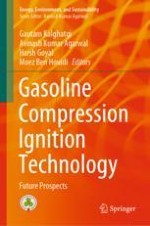2022 | OriginalPaper | Chapter
9. Review of Life Cycle Analysis Studies of Less Processed Fuel for Gasoline Compression Ignition Engines
Authors : Deepak Kumar, Amir F. N. Abdul-Manan, Gautam Kalghatgi, Avinash Kumar Agarwal
Published in: Gasoline Compression Ignition Technology
Publisher: Springer Nature Singapore
Activate our intelligent search to find suitable subject content or patents.
Select sections of text to find matching patents with Artificial Intelligence. powered by
Select sections of text to find additional relevant content using AI-assisted search. powered by
